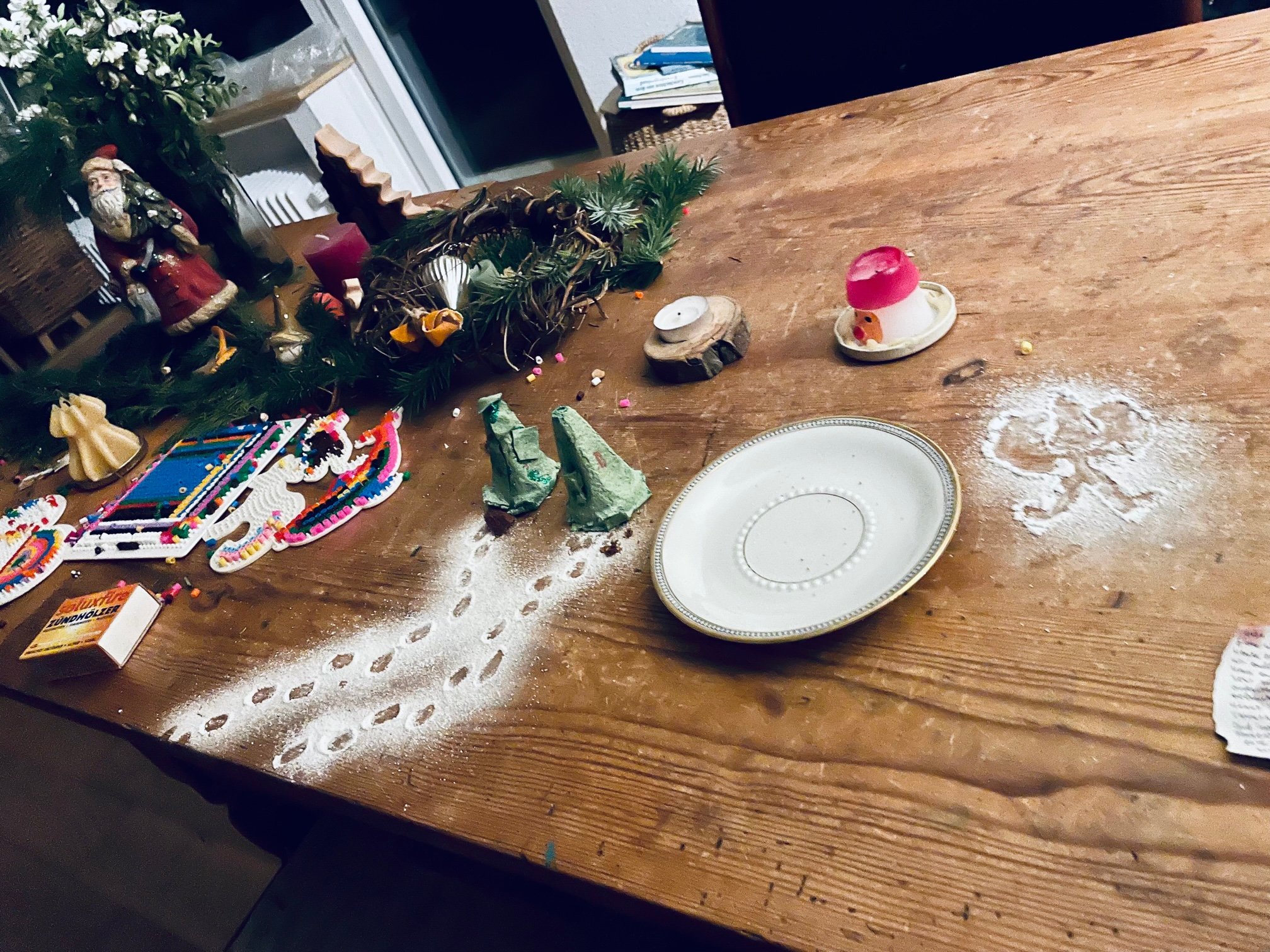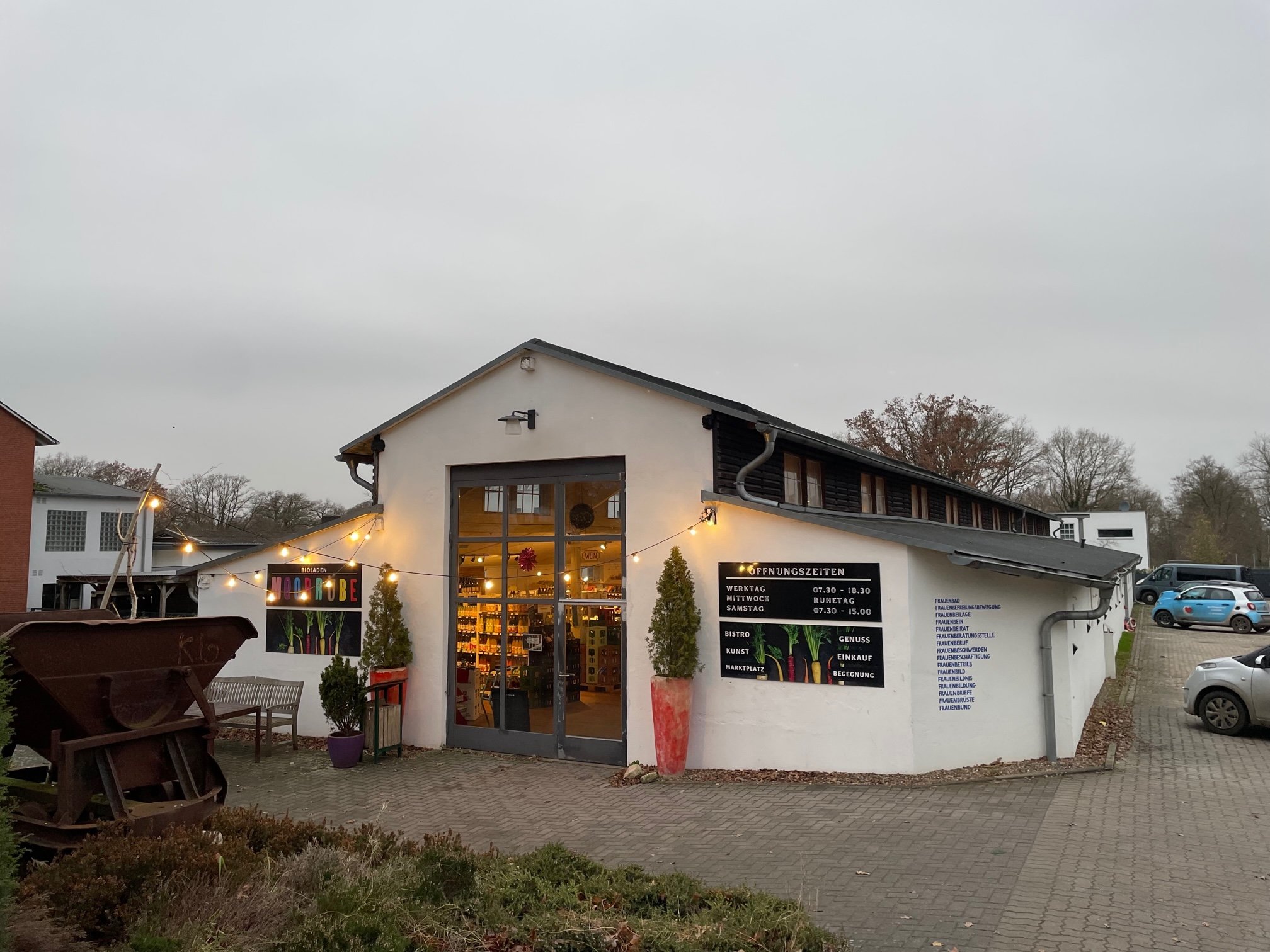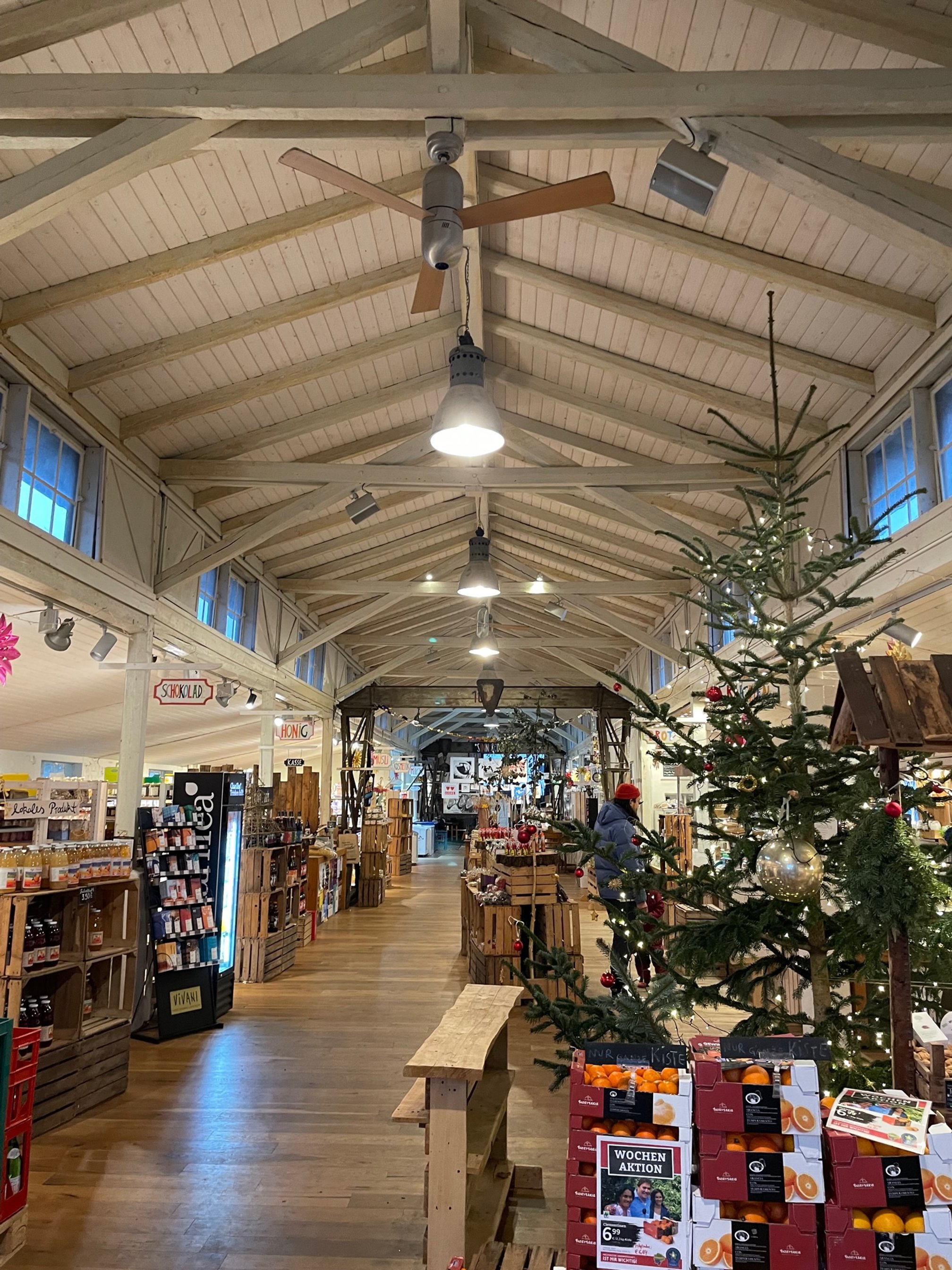The calm of country
Four trains got me there. Four trains including the one that broke down in a small village short of the German border, and yielded a very Polish answer:
“You guys said ninety minutes. It’s been ninety minutes. When are we going?” a man asked an official.
“We’re going when the mechanic gets here,” he said.
The mechanic never got there.
~
So four trains rather than three, and twelve hours rather than nine. Then thirty more minutes by car, and a flashlight to light up the incredible darkness between the car and front door, wherever it was, of the farmhouse apartment I’d be sleeping in.
But at last I was there, settling in. Maybe inside of the calm I’d come for.
Lights out, head on the pillow.
This is when I heard the tapping. There in the darkness, a slow tapping. Which then became a scratching, somewhere on or within the pitched roof up above me.
Hm.
~
In the country comes acceptance.
Acceptance that the spiders will be roommates, up there in the corners, acting as security. And that larger animals — mice, rats, perhaps weasels — may find their way sometimes into attacks, sheds, crawl spaces.
That the winters will bring a long kind of cold, a cold that seeps also into the dirt to form a long, almost forever kind of mud.
And no Uber Eats.
And work. Always, more work.
I’ve written recently about cities. My love of them. Their personalities, their energy.
In the country there is something else. Something quiet. A kind of reward at the end of the acceptance, the work. A thing difficult to put into words exactly, but a feeling.
“I’d still say I’m probably a city person,” said the friend I’d come to visit, that next morning when I joined him and his wife and son and their two dogs for breakfast. He grew up in Bremen, the closest city and where my last train had pulled in, and lived also in Berlin, a place he gushes over. “But I do have to say that now, when I go to the city and return here, I am always happy to be coming back here.”
~
Onto any train, I’ll bring a book. But I won’t read it. It’s tradition now. Because more powerful, always, is the pull of the window. The countryside whipping by. The forests, the fields, the farms. Those kids on their bicycles racing, or sometimes looking back.
Smoke stacks, horses, a chasing dog.
A line of cars caught at the railroad crossing, waiting for us to pass.
Sometimes also, a home. And behind its windows, a glimmer. A lamp or fire, a Christmas tree. Sometimes the vague shape of someone.
Always, I catch myself wondering: what is the distance between them and us? Their lives, ours? Their view, mine?
To them we’re also a flash, this streak of noise and silver going by, blurred heads passing. We’ll never meet. We’ll get only these little flashes, then poof, gone.
I’ll wonder: are we an annoyance? Or an envy? Do these people ever dream of leaping up onto our train, and escaping to some city along our line? Or do they pity our movement, our speed, our places?
Passing thoughts of passing people. Only once in awhile — it’s barely seen anymore, but still sometimes one sees it — there might be that old gesture there within the flash: a hand up, a wave.
~
More than anything, one is struck by the light. Light everywhere.
Kapuscinski wrote this about arriving in Ghana in 1958, and the line rolls around in my head a few times when there in the country, in the dark. More than anything, one is struck by the dark. By the lack of street lamps along the incredibly straight country roads; these forever roads instead canopied only by trees, and space.
And rarely does a car come by; just wind, and dots of light in the great distance or in the sky. In the beginning, for a city boy, this immediate quiet and darkness is jarring, disorienting. A flashlight is used. By the end of the trip, though: acceptance. The ground felt for and trusted, and somehow it’s better this way, without the flashlight. Somewhere in the dark instead, a smile. And a looking up rather than down, towards the glow of sky.
On the final night before my departure, I join my friend and his dog for a walk through that dark. When we near the road, he calls out for the dog to come back to him, to be leashed out of precaution. I can’t see the hand in front of my face, yet then I hear the click of a leash upon the dog’s collar. I ask, “How do you even see him? I can’t see anything.” And my friend says, “I don’t see him. I just hear him panting, and know he’s there.”
~
There was one visit to an old train station that’s now a country market.
One drive that included a slowing down along the field where thousands of birds stood almost motionless, they stop there either to rest or to settle for several weeks every winter. “I’m not sure which, but every year they’re here,” my friend said.
One bike ride to the farm where my friend’s wife looks after their two adopted horses — she and the owners of the other horses all part of a collective, arriving daily to do the work required: the hay, the water, the washing, the manure. Julia is a petite woman who travels also into the city for her part-time job, and with Zeki she raises their five-year-old son Thales. Yet she walked about the horses with verve, with quick steps, with the air of an old farmhand, her boots in the mud and her gloved hands working the hay, the shovel, a wheelbarrow. All while little Thales, who’d come with us for the visit so I could see the place, leaped aboard a tractor and sat beside the driver as he moved bales of the hay from one spot to the other.
Thales also had an an idea: let’s free the other tractor, the old one nearby that’s been swallowed up by years of thorny blackberry vine growth, because maybe the old tractor could be liberated, be wakened from the earth’s grip, from its slumber.
So we got to work, his Dad and I, cutting at the vines with what we had that day: two pairs of scissors. Plenty of work remains, but on that day, a start.
~
Good is quiet, my friend once told me. And there, in his world, I better understood where the sentence came from.
It came from a place where rising to meet the day comes also in the dark, for there is too much to do to wait any longer.
It came from a place where that little boy gets to grow up among the horses, the tractors, those flocks of deer and the natural light rather than the artificial.
It came from a place where their dogs are not only rescues, but also their horses — still I can’t shake from memory the deep gaze of their white horse from Spain. When he’d arrived, they said, he was a fidgety, feisty thing, he wouldn’t trust the humans around him because he’d been abused. But now he was calm, he just stood and he looked, he studied, and before we hopped back onto our bikes to ride away, Julia held and kissed him on the very nose where there was an old scar from that old life.
“I’m so thankful I get to do it,” Julia told me of the work with the horses. She said this as she drove me back to Bremen to catch my train heading away. It was a cold Tuesday morning, and raining, and still dark, yet she’d already been to the horses earlier and would probably end up there again later, after work.
“I love hearing them eat. The sound they make,” she said. And the feeling of her feet there on the ground, and the vastness of what’s always around — the space, the fields, the sky. “I just feel so connected to the universe when I’m there.”
As we neared Bremen, we were met with more light, more noise, more traffic.
And then I was off, onto another train, a book in front of me but closed of course, my eyes back on the window, and my thoughts swirling. My life. My choices. Then the countryside again, and those other lives whipping by.
I’m back in Warsaw now, the skyline and city light out my window. I’m here, but the feeling of there still lingers. That dark, that calm. That quiet.
It’s the night before Christmas. And I’m remembering now also how on that final morning, before we left for the train station, little Thales had brought me inside to show me that some elves had arrived overnight, for the evidence was clearly there on their table. And what those elves may have whispered into my ear (not the boy’s, obviously) was that for Christmas this year, Santa (and perhaps Thales’ musician father) had been working on a gift for the little one, a gift that could change the place, that calm forever.
A set of drums.
Good is quiet. But somewhere there in that other life, good may also soon be something else. Something louder.






